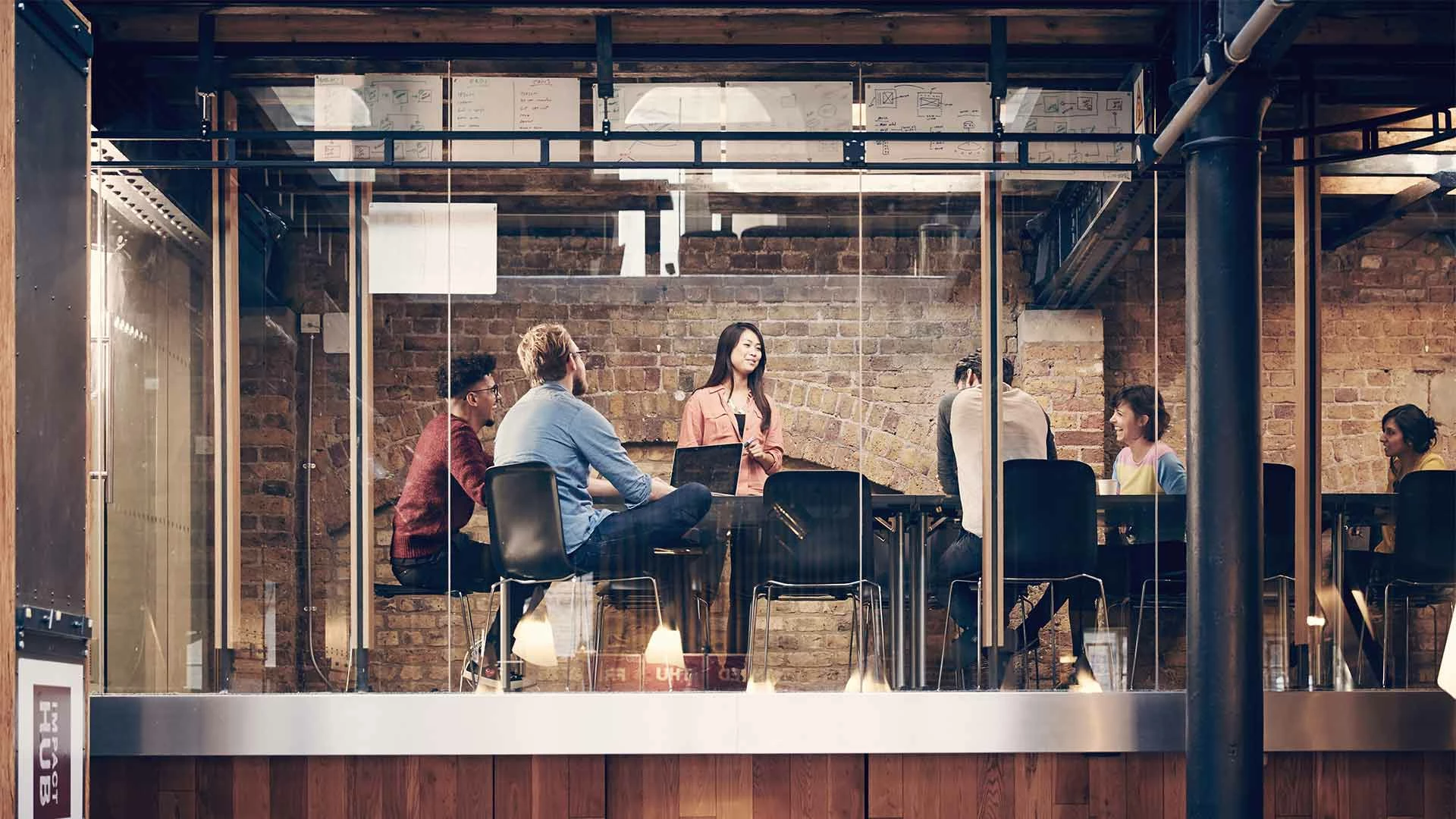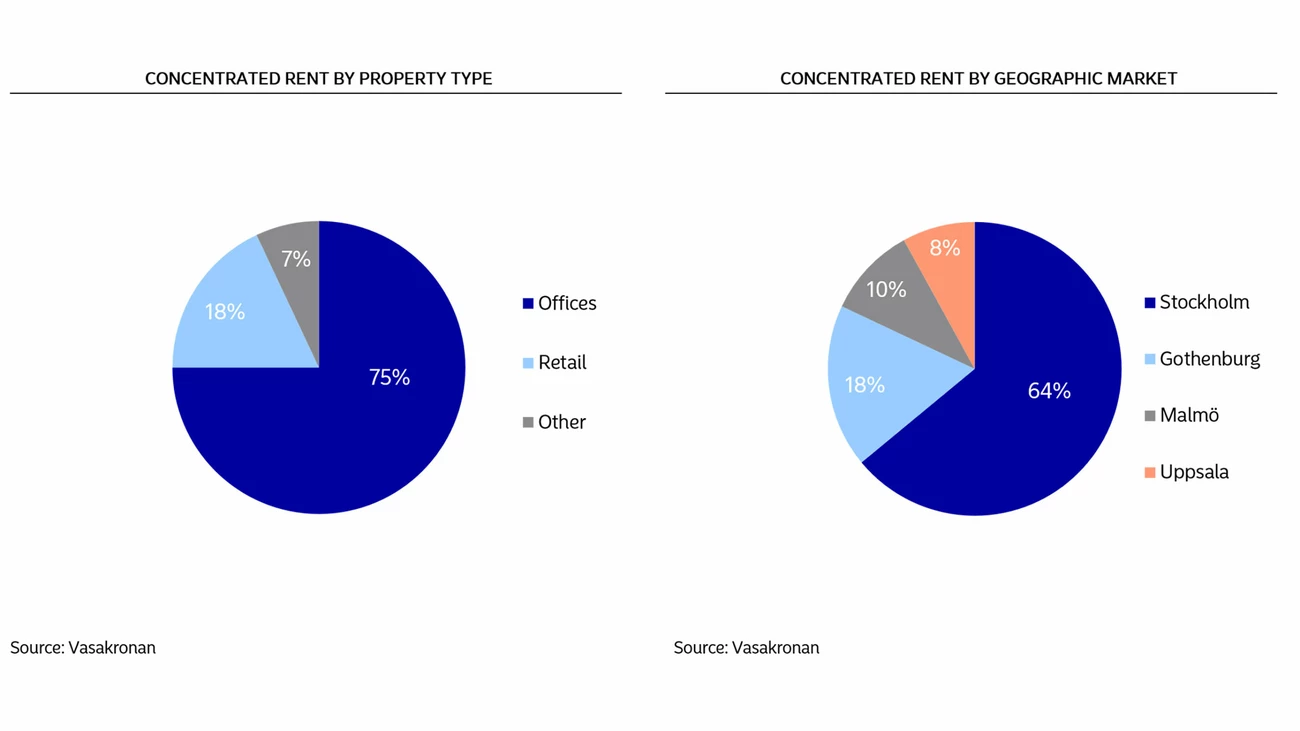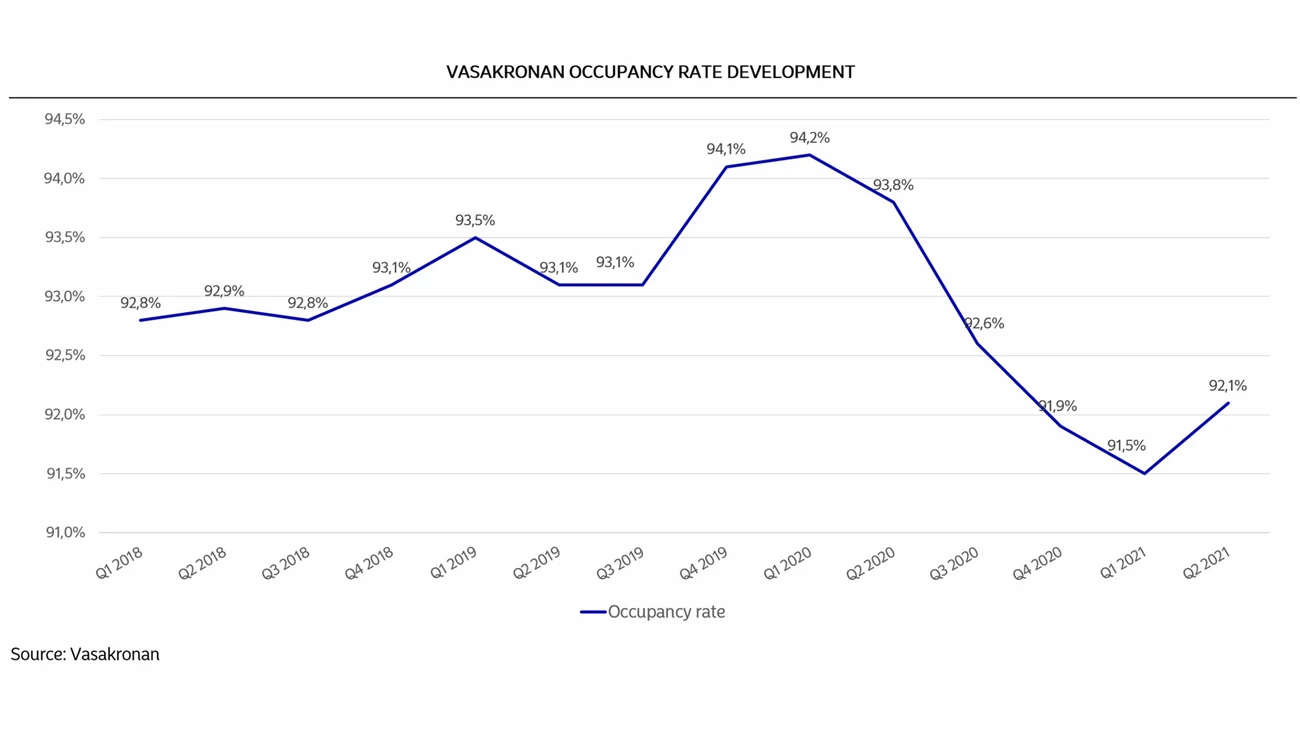The COVID-19 pandemic sparked a reinvention of our ways of working, with more companies opening up to hybrid and remote working models. The big question companies now face is not whether they still need offices but rather how offices can best support the new ways of working, for example, as meeting places and culture carriers.
That’s according to Ronald Bäckrud (RB), Head of Region Stockholm at Vasakronan, Sweden’s largest commercial real estate company. He shares the landlord perspective on these changes with Nordea Thematics’ Viktor Sonebäck (VS) in the latest Nordea On Your Mind, “Office Space.”
VS: How have your office tenants been affected and behaved during the COVID-19 pandemic?
RB: The impact of the pandemic has varied hugely among different businesses. For some, 2020 became a very challenging journey, which required major restructuring to adjust the cost base. Those who succeeded built a foundation for a viable business. Other businesses have seen only a limited impact, or in some cases even a boost compared to where they were before the pandemic.
From a practical point of view, the introduction of official recommendations from authorities for people to work remotely required a fairly dramatic readjustment for many of our office tenants. Some chose to close their offices entirely, and others remained open. In my view, many have been very successful in adapting to the new ways of working, which the pandemic has forced upon us in various ways.
VS: Has there been a need for any temporary adjustments in rental levels, deferred payments or similar?
RB: On a general level, the pandemic has so far had a limited effect on Vasakronan’s rental revenue and earnings. For a time during 2020, the market was hesitant, which is what you would expect in the circumstances. However, rental volumes remained healthy in 2020, and we saw new rentals of SEK 535m, which I would describe as a fairly normal level.
At the same time, many of our customers within urban retail, restaurants and hospitality have just experienced 18 of their most difficult months ever. We have made a great effort to have a close dialogue with our most severely affected customers to determine how we could best support them in various ways. We have made commercial assessments on a case-by-case basis and, among other things, offered rental discounts under the framework of the central government rental support scheme, as well as deferrals of rent payments. However, there have also been positive signals. One of the strongest we have seen came from the fashion retailer UNIQLO, which bucked the trend and followed up its successful establishment in Stockholm a few years ago with a new store opening in our premises in Gothenburg in the spring of 2021.





